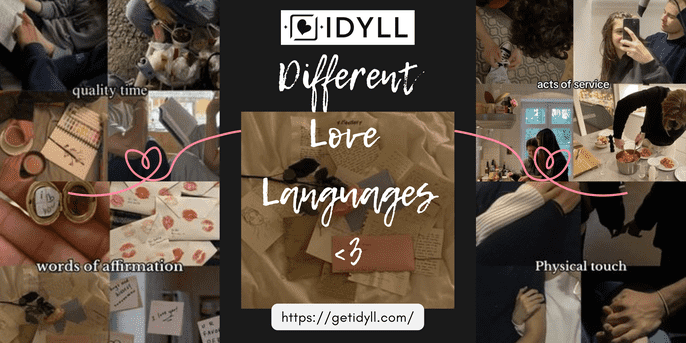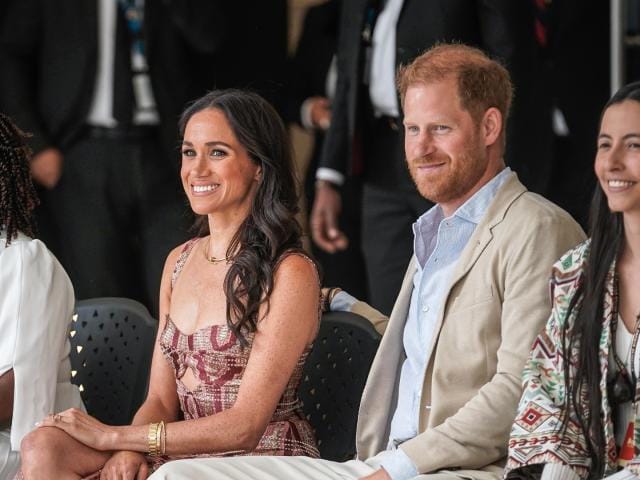Connecting Across Love Languages: Tips for Couples

Relationships are tricky enough to navigate, but add in different love languages, and you've got yourself a whole new layer of complexity! Dr. Gary Chapman introduced the idea of love languages—words of affirmation, acts of service, receiving gifts, quality time, and physical touch—as a way to understand how people express and feel love. And it’s honestly a game-changer!
Table of Contents:
Whether you and your partner vibe on the same love language or are complete opposites, figuring out how to “speak” each other’s language can totally change the game. It's like finally learning the cheat codes for deeper connection and genuine appreciation, instead of wondering why your thoughtful acts of service don’t seem to be hitting the mark. With a little bit of love language fluency, your relationship can go from good to "where have you been all my life?!"

Cracking the Love Code
Understanding love languages can be a game-changer for relationships. Everyone has their own unique way of giving and receiving love, and if you’re not in sync with your partner's style, things can get hilariously mismatched. Like, one person might be all about hearing, "You're amazing," while the other is thinking, "All I want is for you to put your phone down for five minutes and actually see me!" Without this awareness, it’s easy to wind up with a lot of unmet expectations and random disappointments.
Take Prince Harry and Meghan Markle, for instance. Rumor has it Meghan’s top love language is quality time, while Harry leans more towards physical touch and doing thoughtful things. They’re aware of these differences, though, so they make an effort to keep things balanced—whether that’s scheduling uninterrupted one-on-one time or showing affection with sweet, spontaneous gestures. It’s like they’ve cracked the code: love languages aren’t there to complicate things; they’re the little hacks that make relationships click.

Why Love Languages Matter?
Love languages shape how people interpret love and affection, and speaking each other’s language is an act of empathy and dedication. When both partners feel seen and appreciated in the ways that resonate most with them, it enhances relationship satisfaction. According to Truity’s survey of over 500,000 people, “quality time” was the most common primary love language, followed closely by “words of affirmation.” However, mismatches in love languages were a key factor in dissatisfaction among couples, as one partner’s efforts to show love often went unrecognized by the other.

Closing the Love Language Gap
- Identify Your Own and Your Partner’s Love Language: Awareness is the first step. Knowing what makes you feel valued, and understanding the same for your partner, gives a foundation for healthy relationship practices.
- Find Small Ways to Integrate Both Love Languages: If your partner’s love language is acts of service and yours is quality time, aim for activities that satisfy both, like cooking together or running errands side by side. These shared moments allow both partners to feel connected and appreciated.
- Create rituals and shared experiences: Include small, daily habits that honor one another's love language. A partner whose language is words of affirmation might love waking up to a note on the bathroom mirror. These small gestures create routine and mutual care, and both feel cherished.
- Acknowledge and Accept Differences: The goal is not to change your love language or that of your partner but to develop a mutual appreciation. Celebrities like Chrissy Teigen and John Legend show that, although love languages might differ—John’s is primarily words of affirmation, while Chrissy finds meaning in acts of service—accepting those differences builds resilience and joy.
- Communicate About Needs and Preferences: Honest dialogue about love languages can prevent misunderstandings. Talk openly about what expressions of love make you feel appreciated, and ask your partner to share theirs. This can lead to a richer understanding of each other's needs, preventing unmet expectations and increasing closeness.

Applying Love Language Theory in Real Life
One of the most profound benefits of understanding love languages is the effect it can have on intimacy and trust. When a couple becomes attuned to each other’s love language, small efforts create a large impact. For example, a partner who understands that their loved one feels valued by physical touch can focus on more frequent, meaningful gestures like holding hands or hugs. Simple but consistent adjustments allow both partners to feel prioritized and loved.

The theory of love languages is more than just a relationship tool—it’s a lens through which partners can build empathy and appreciation. Research consistently shows that couples who practice love language alignment report higher relationship satisfaction, better communication, and a stronger emotional connection. This kind of dedication, paired with patience and adaptability, fosters enduring partnerships.
Conclusion
It is not a matter of changing who you are or forcing your partner to meet you halfway but a commitment to understanding and supporting each other's needs. Love languages serve as a powerful reminder that love is as much about giving as it is about receiving and that relationships flourish when partners make an effort to meet each other where they are.
Relationships like those of Prince Harry and Meghan Markle or Chrissy Teigen and John Legend showcase how understanding and honoring love languages can turn potential disconnects into points of deeper connection. By embracing each other’s differences, communicating openly, and practicing empathy, couples can create lasting bonds that not only survive but thrive.

Platforms like Idyll, with a focus on meaningful connections, provide a refreshing approach by incorporating concepts like love languages into dating. Rather than encouraging surface-level conversations, Idyll prompts deeper engagement based on mutual interests and values. With an understanding of love languages, couples can connect on a deeper level, learning to speak each other’s emotional language and fostering relationships that are empathetic and fulfilling. If typical dating feels unfulfilling, exploring love languages on a platform like Idyll could be the change you need.
Download Idyll- The Perfect College Dating App!

